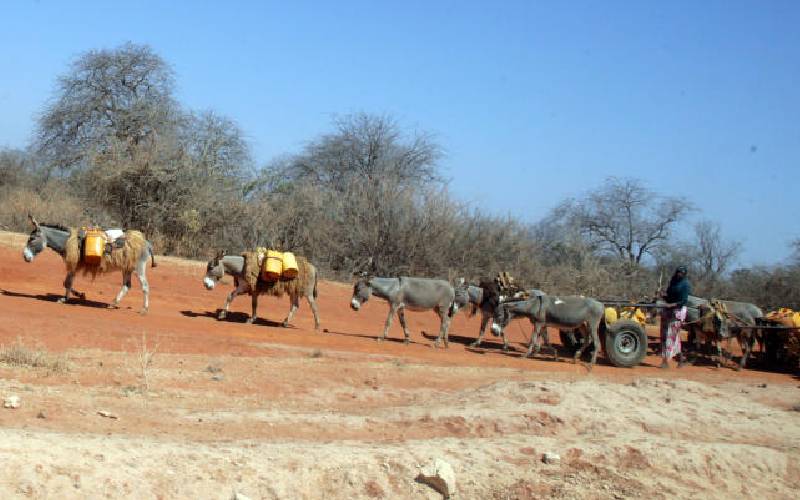
Donkeys are the main means of transport in Mandera county. [File]
The Ministry of Transport, Infrastructure and Public Works has wowed Kenyans, specifically those residing in the NorthEastern region with a September 9, 2020 press release. According to the ministry’s “Highways, windfalls on wheels, wow!” press release, Kenya has successfully negotiated from the World Bank, “Credit facility amounting to Sh81 billion ($750 million) to finance the 740km road from Isiolo to Mandera, which is part of the 1,012km Nairobi-Wajir-Mandera Regional Corridor.”